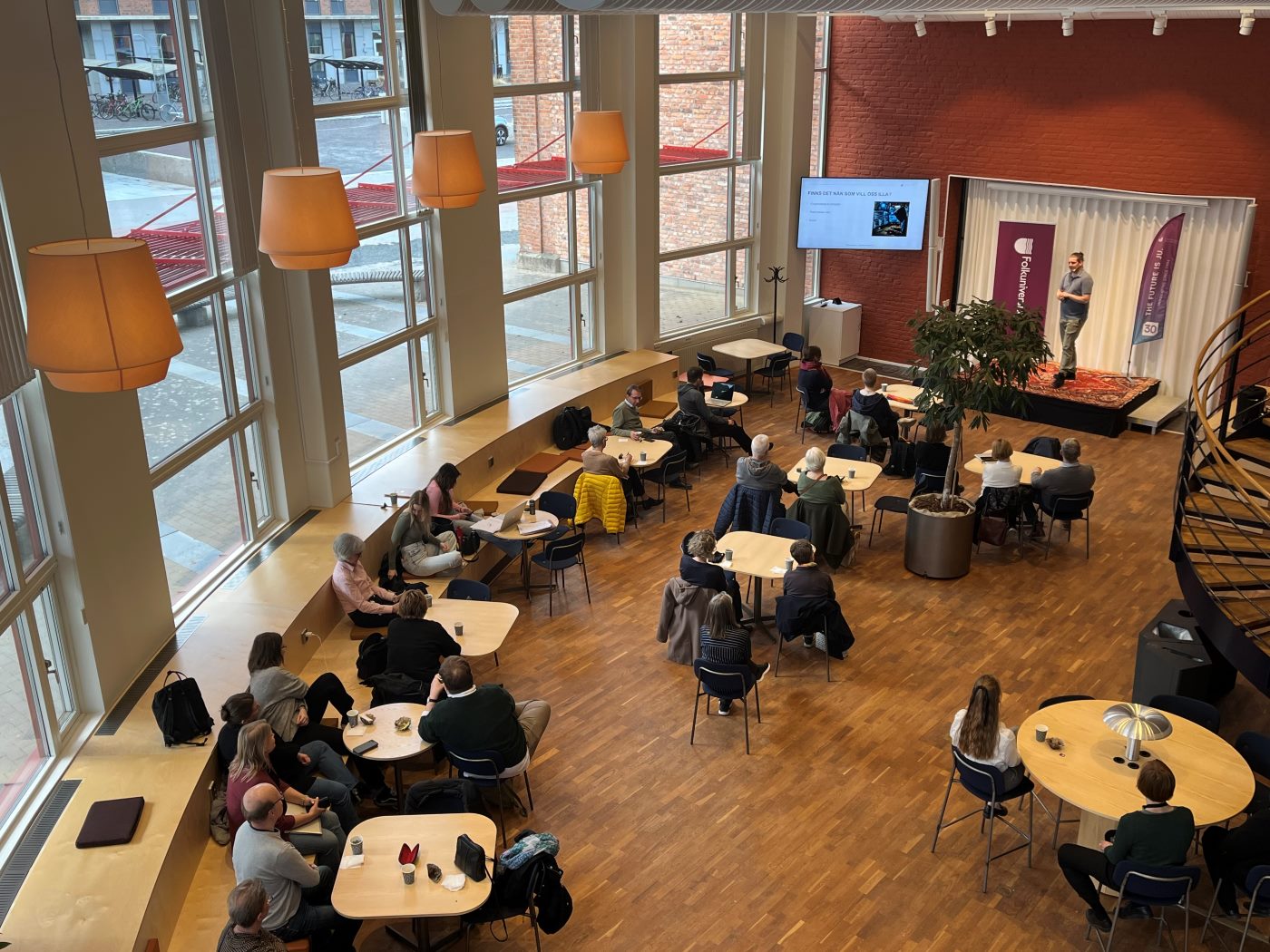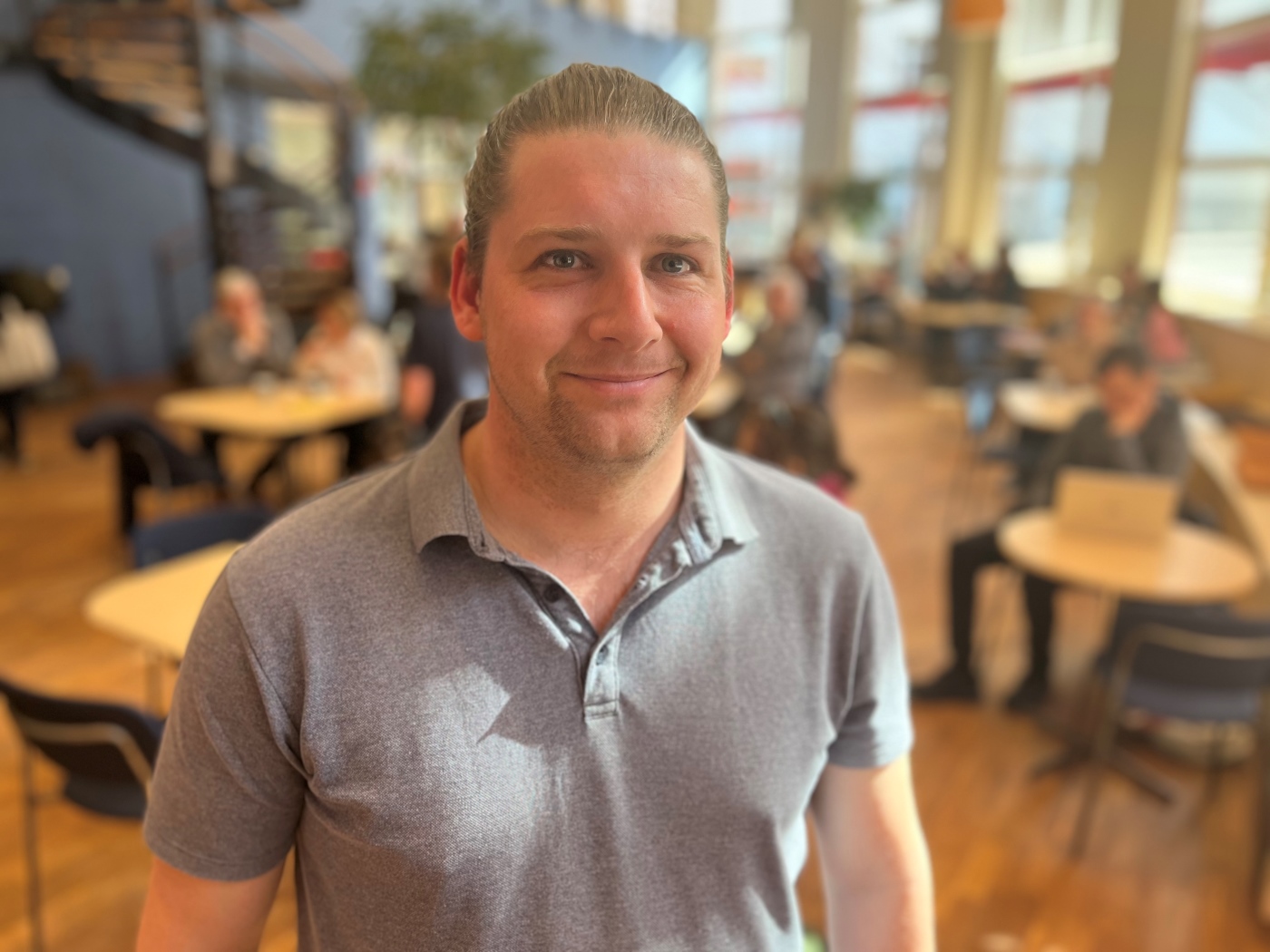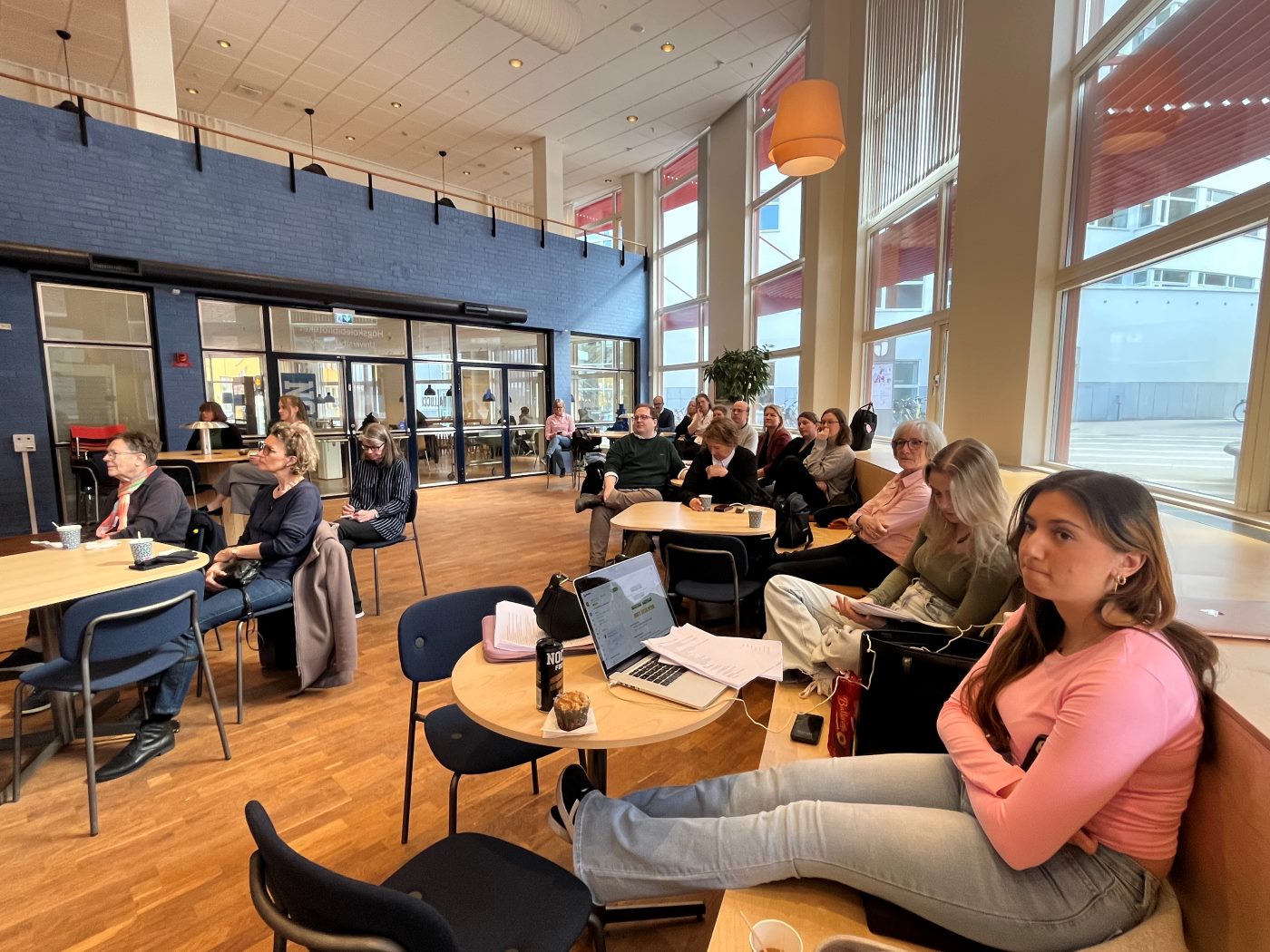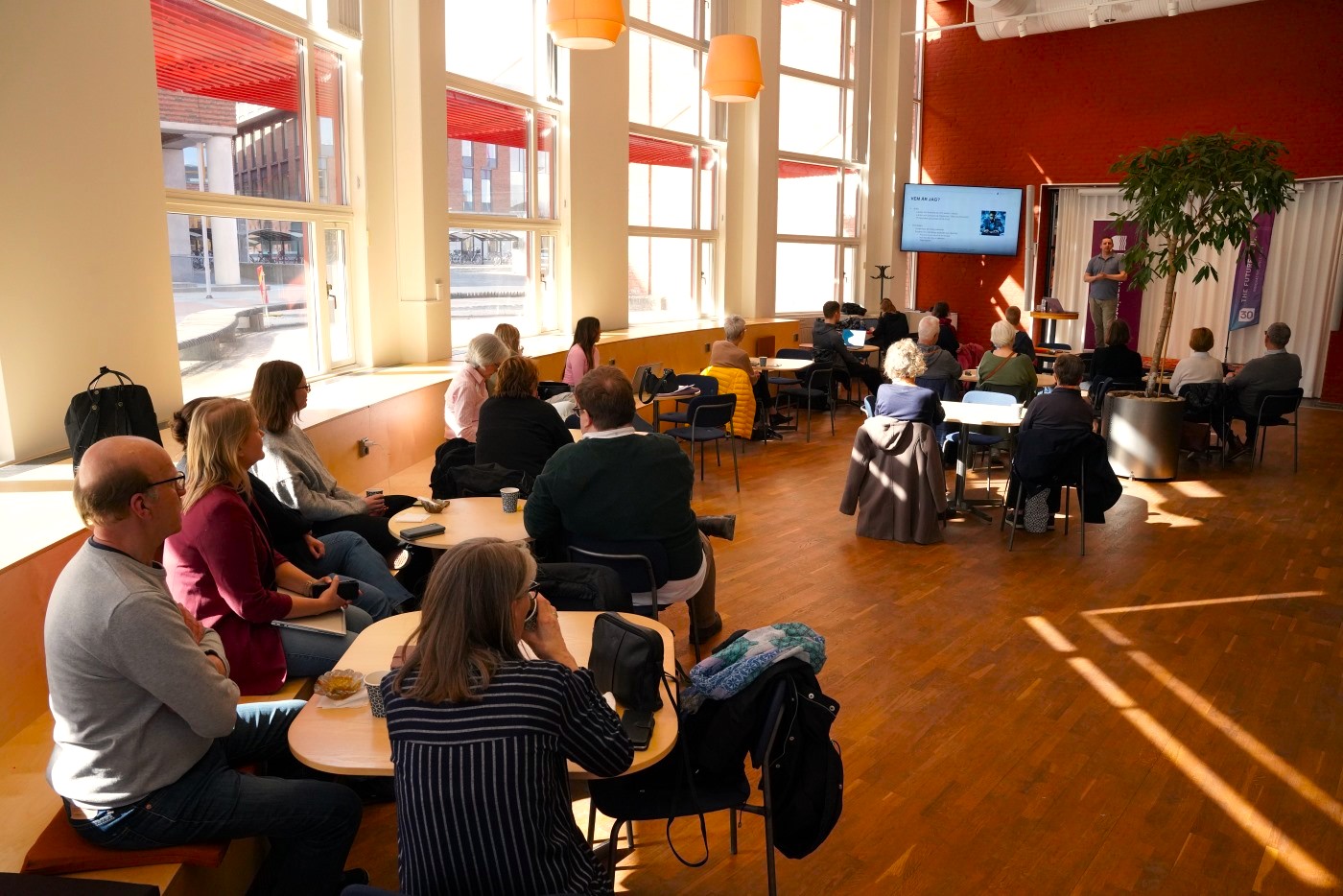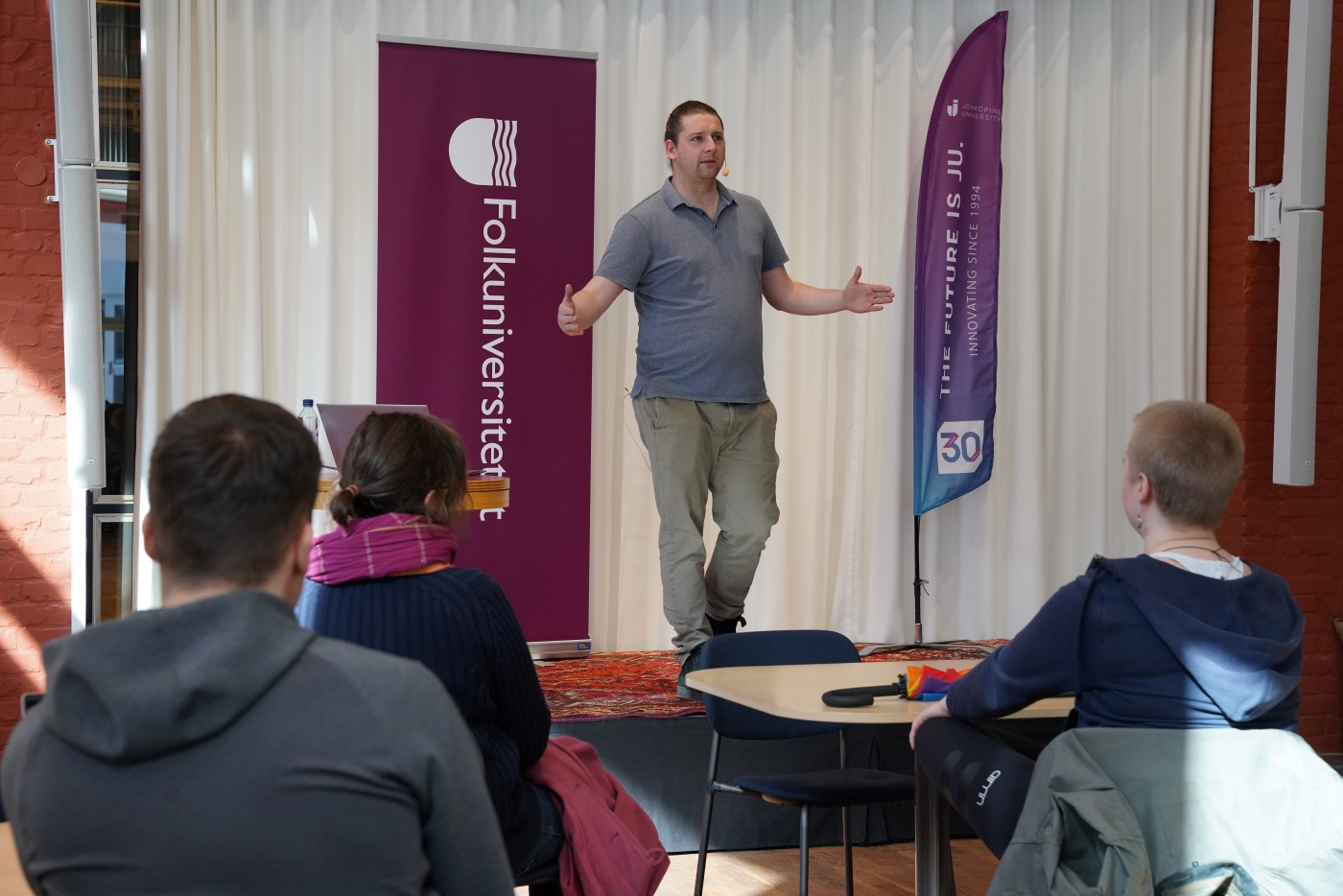
Joakim Kävrestad, Assistant Professor Computer Science at the School of Engineering (JTH), encouraged the audience to write down their passwords on a piece of paper that they keep at home. "It's the only approach that's not easy for hackers to attack," he says. The lecture was held in the University Library.
JU LIVE - How to stay safe online
Copy your data, write down your passwords and be skeptical. These were some advice that Joakim Kävrestad, Assistant Professor Computer Science at the School of Engineering (JTH), Jönköping University (JU), shared during his JU LIVE lecture in the University Library on 24 April.
The JU LIVE lecture on how to stay safe and secure online and attracted around 30 people. To them Joakim Kävrestad explained why he thinks long passwords and changing them regularly is a bad idea.
“A normal functioning human being can remember passwords of 6-9 characters, so it is just stupid to go against that. Repeatedly changing passwords is just as stupid. If your friends think so, then cancel your acquaintance with them, says Joakim Kävrestad with a smile.
Simple passwords
He advocates simple passwords consisting of four unrelated words like: tree, roof, blue staircase. It is good if passwords contain something that only you know about, but avoid social security numbers. Joakim Kävrestad also wanted to dispel the myth that it is bad to write down your passwords on a piece of paper that you keep at home, because it is safe and out of reach of hackers.
“And I promise, no one will break into your home to take your password note,” says Joakim Kävrestad.
He has previously worked as a forensic scientist in the police and mentioned that the only target for organized crime is money. That is why they are online and they largely target private individuals through scams.
"Steel your identity and hijack your accounts"
“If they do not scam you for money directly, you have an identity that they can steal to hijack accounts and borrow money in your name," says Joakim Kävrestad.
Since cyber threats will always exist, he advised the audience to copy photos, videos and other data to an external hard drive or through cloud storage.
Joakim Kävrestad was asked about posting pictures of your children or grandchildren on social media and he thinks you should be cautious about it, for several reasons.
Pictures of children on social media
“Posting pictures of your child's birthday is not a big deal, but I do not think you should depict your childrens childhood on social media. The children have usually not been allowed to choose for themselves whether they want to participate there and they may feel bad about it later. In addition, if you take pictures of your children or grandchildren in public environments and then publish them somewhere, you may accidentally reveal people with protected identities.
Joakim Kävrestad thought it was fun to meet an audience he is not used to at JU LIVE and that the conversation were a bit freer in such a context than with researchers and students.
“It is important with this type of open lectures because we reach out with research results to the public, which creates benefit in society. I got the feeling that many people were interested in the topic, he says.
It was an entertaining lecture and there were several times scattered laughter among the audience in the JMW Hall at the University Library.
"My way of trying to help the participants"
“It is my way of trying to help the participants maintain focus and energy”, says Joakim Kävrestad.
Gerd Gunnarsson, one of the audience members, thinks it was an important topic that was raised in the lecture and that it is good that the public is invited to take part in it. She herself is careful when she is online and thought it was a good and interesting lecture with a light-hearted tone.
The next and last JU LIVE of the season takes place at the University Library on 23 May. Then Johannes Hagen, Associate Professor of Economics at Jönköping International Business School (JIBS) will lecture on how to navigate the pension system.
Read more and register for the JU LIVE lecture on 23 May here
- Associate Professor Computer Science
- School of Engineering
- joakim.kavrestad@ju.se
- +46 36-10 1305



